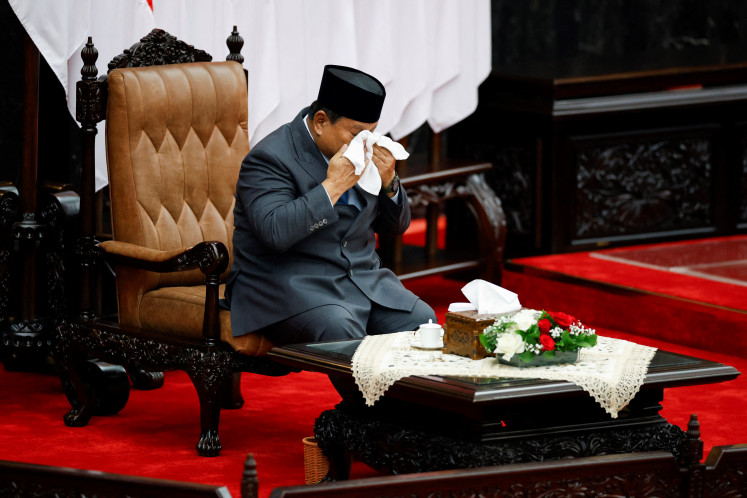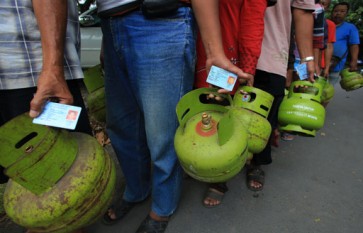Popular Reads
Top Results
Can't find what you're looking for?
View all search resultsPopular Reads
Top Results
Can't find what you're looking for?
View all search resultsDilemma of energy used for cooking in Indonesia
Indonesia still relies on imports to cope with a shortage of liquefied petroleum gas (LPG), which is expected to worsen in the coming years because of surging demand.
Change text size
Gift Premium Articles
to Anyone
I
ndonesia still relies on imports to cope with a shortage of liquefied petroleum gas (LPG), which is expected to worsen in the coming years because of surging demand.
Indonesia’s consumption of LPG rose to 6.67 million metric tons last year, up 1.5 percent from 2015, according to the data from the Energy and Mineral Resources Ministry. The domestic production of LPG, however, dropped to 2.24 million metric tons in 2016 from 2.27 million the previous year. This has led to an increase in LPG imports to 4.42 million metric tons in 2016 from 4.3 million in 2015.
This LPG shortage was rooted in a massive energy program launched by the government in 2007 to switch from kerosene to LPG as cooking fuels. Meanwhile, the Central Statistics Agency (BPS) recorded that 24.8 million households still rely on firewood for cooking.
Analysis of the LPG program found that the program mostly benefited higher and medium income households in suburban areas. In fact, it doesn’t significantly lower the average number of energy-poor people in rural areas. This situation has become a driving force for those people to continue using wood as a cooking fuel.
Actually, the number of LPG users increases and of kerosene users declines, yet the number of firewood users remains the same and even increases. Some people who already have access to LPG still like to use firewood because they believe food tastes better when cooked over a wood fire. The firewood cooking has been a cultural tradition and a social practice for rural people. Even on a business level, the firewood tradition matters. A tofu company in East Java maintains the use of wooden and stone devices, as well as firewood.
Consequently, the practice adversely impacts local forest ecosystems and contributes to a rise in deforestation, which is estimated to reach 2.5 million hectares per year. One of the direct causes is humans taking firewood for cooking from surrounding forests. The firewood cooking also causes indoor air pollution and a negative impact on respiratory health. It generates a high amount of airborne particulate matter and black carbon concentrations when the firewood is burned in a room with poorly ventilated furnaces and cookstoves.
To respond to the problem, Hivos-International NGO and SNV (the Netherlands Development Organization) established a program in Indonesia called BIRU (biogas for households) to change the behavior of rural people. The program installed 16,015 digesters in nine provinces in Indonesia from 2010 to 2016.


















